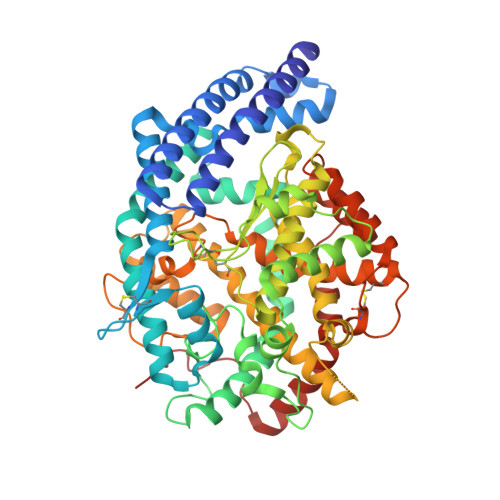Interkingdom Pharmacology of Angiotensin-I Converting Enzyme Inhibitor Phosphonates Produced by Actinomycetes
Kramer, G.J., Mohd, A., Schwager, S.L.U., Masuyer, G., Acharya, K.R., Sturrock, E.D., Bachmann, B.O.(2014) ACS Med Chem Lett 5: 346
- PubMed: 24900839
- DOI: https://doi.org/10.1021/ml4004588
- Primary Citation of Related Structures:
4BZR, 4BZS - PubMed Abstract:
The K-26 family of bacterial secondary metabolites are N-modified tripeptides terminated by an unusual phosphonate analog of tyrosine. These natural products, produced via three different actinomycetales, are potent inhibitors of human angiotensin-I converting enzyme (ACE). Herein we investigate the interkingdom pharmacology of the K-26 family by synthesizing these metabolites and assessing their potency as inhibitors of both the N-terminal and C-terminal domains of human ACE. In most cases, selectivity for the C-terminal domain of ACE is displayed. Co-crystallization of K-26 in both domains of human ACE reveals the structural basis of the potent inhibition and has shown an unusual binding motif that may guide future design of domain-selective inhibitors. Finally, the activity of K-26 is assayed against a cohort of microbially produced ACE relatives. In contrast to the synthetic ACE inhibitor captopril, which demonstrates broad interkingdom inhibition of ACE-like enzymes, K-26 selectively targets the eukaryotic family.
Organizational Affiliation:
Vanderbilt University Department of Chemistry, 7300 Stevenson Center, Nashville, Tennessee 37204, United States.





















